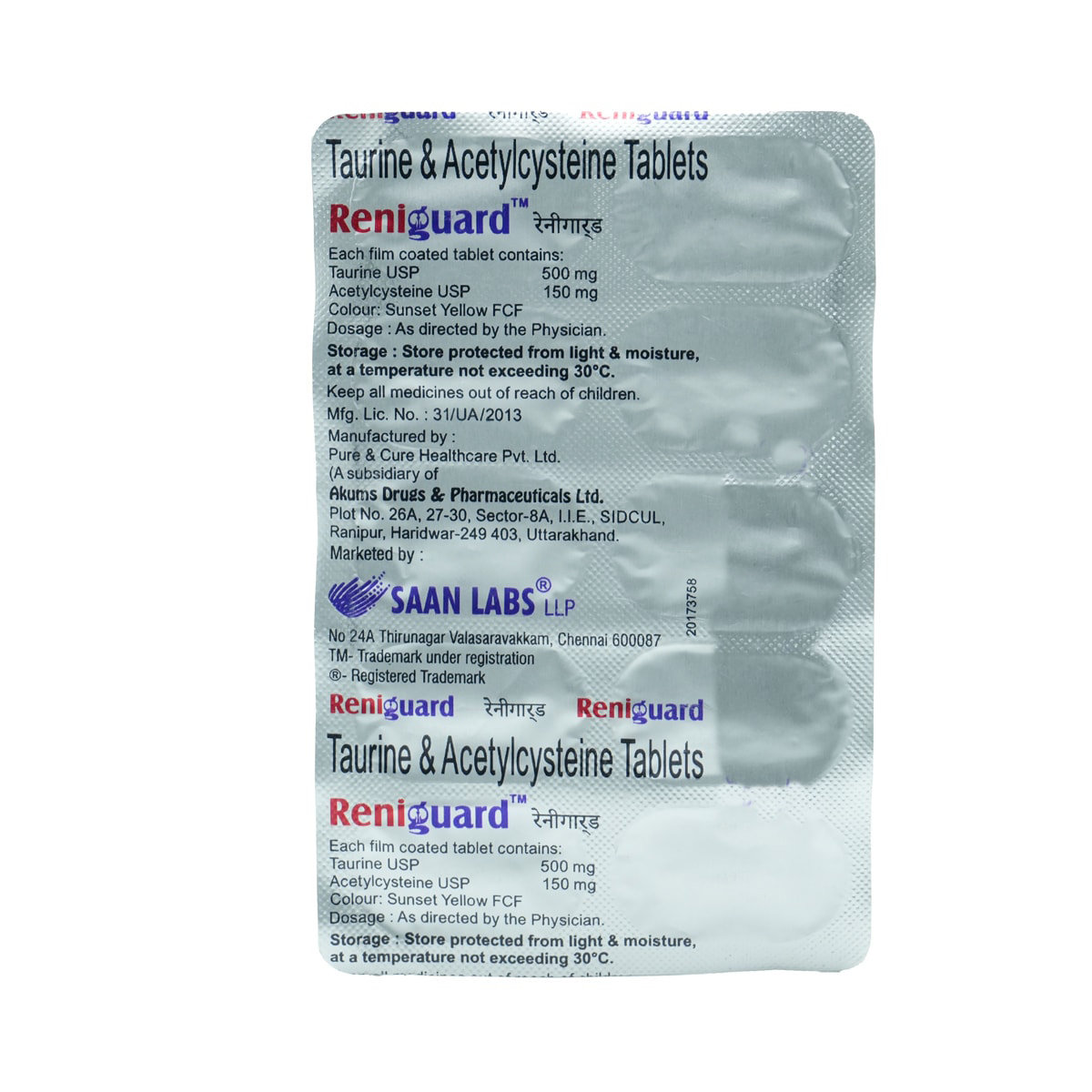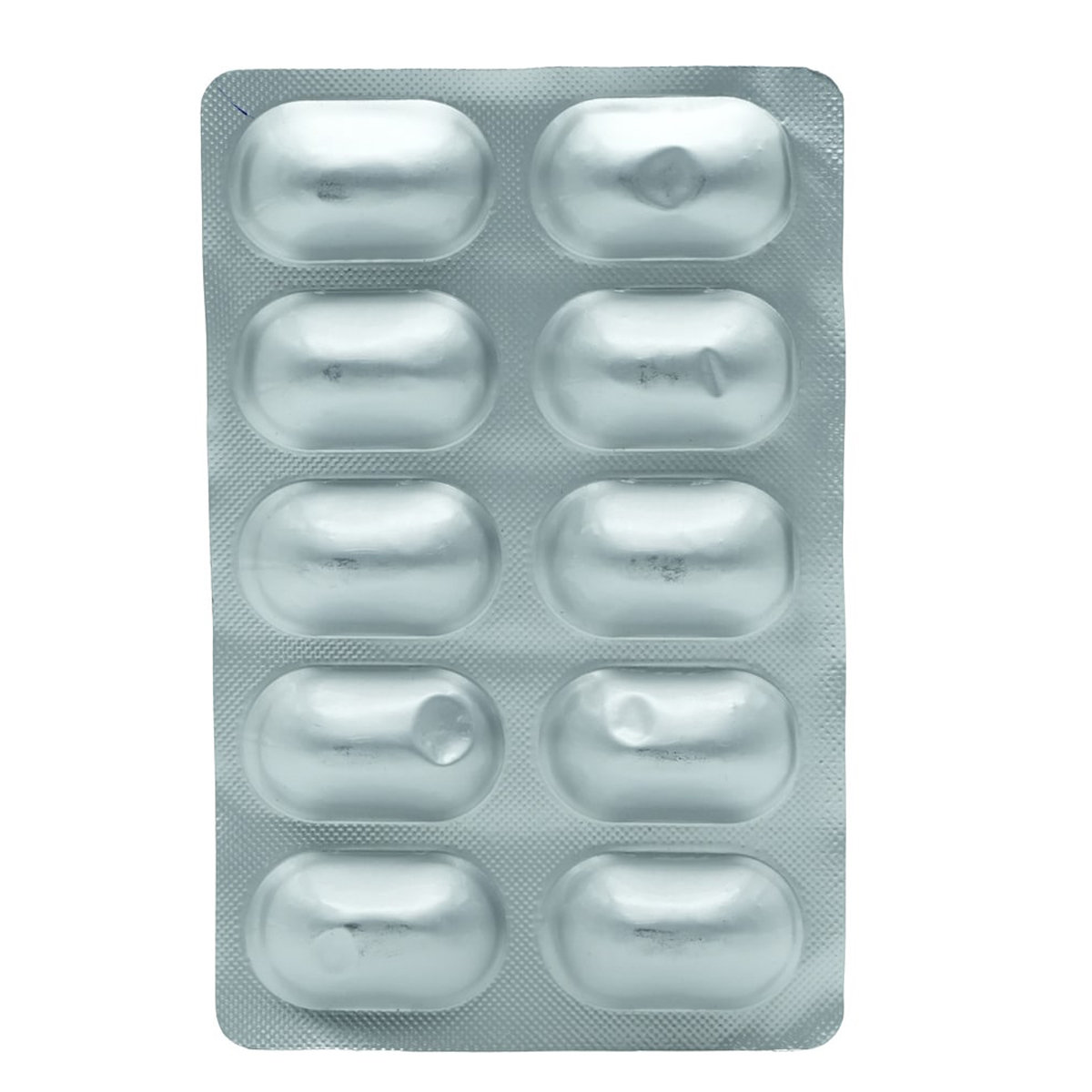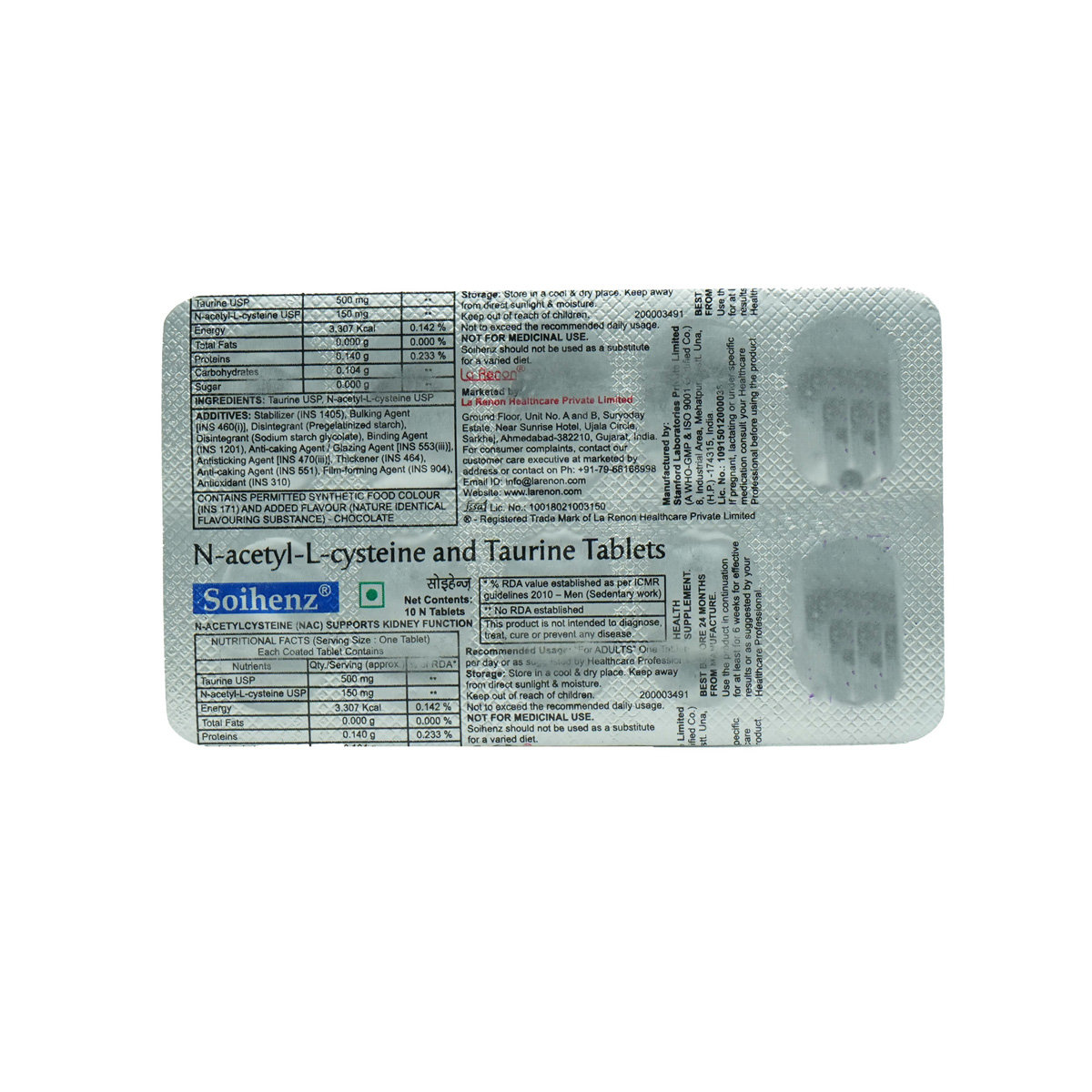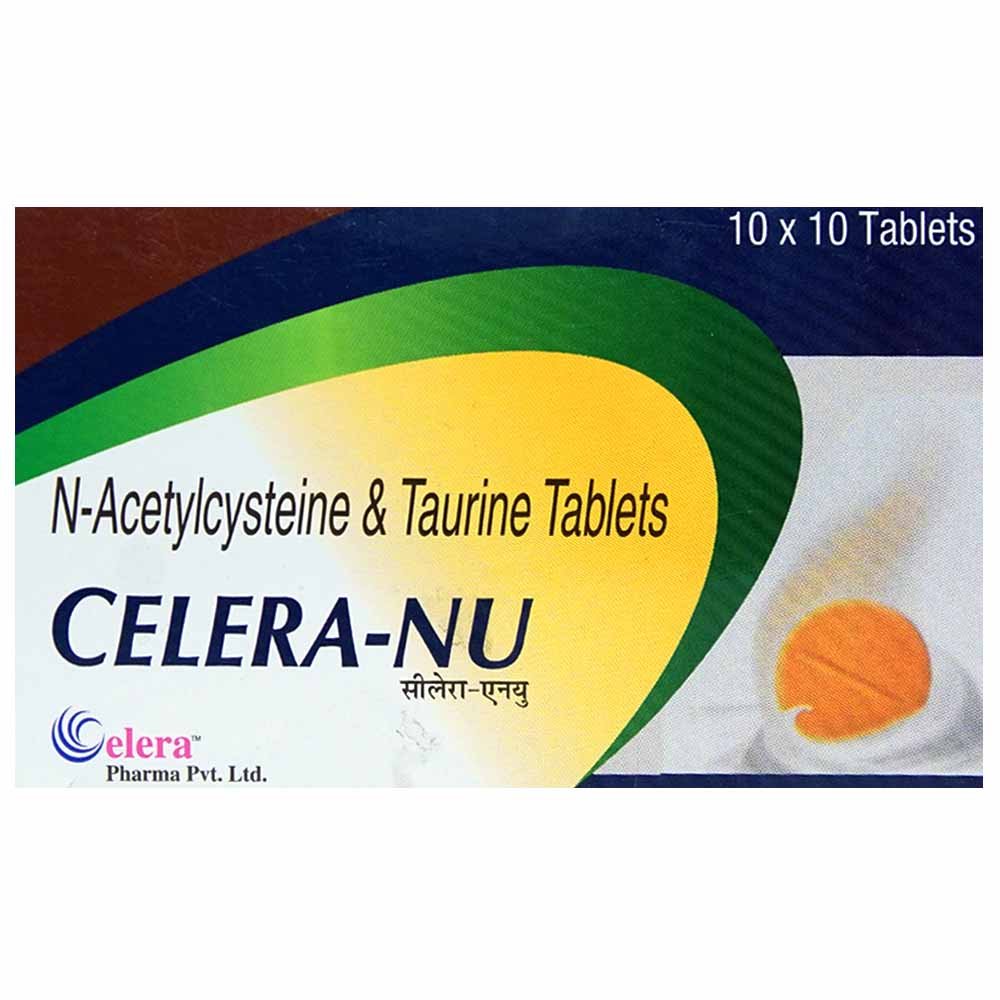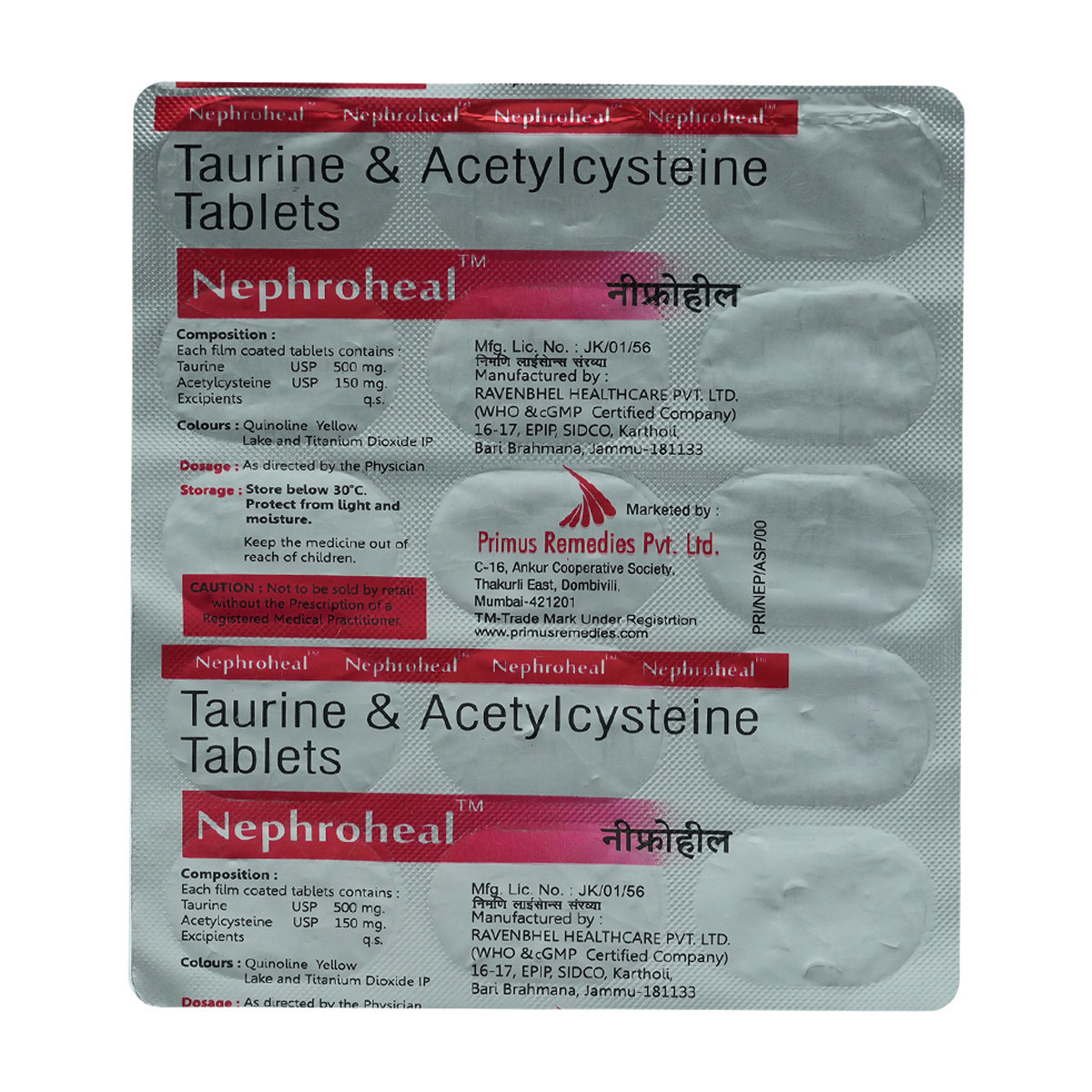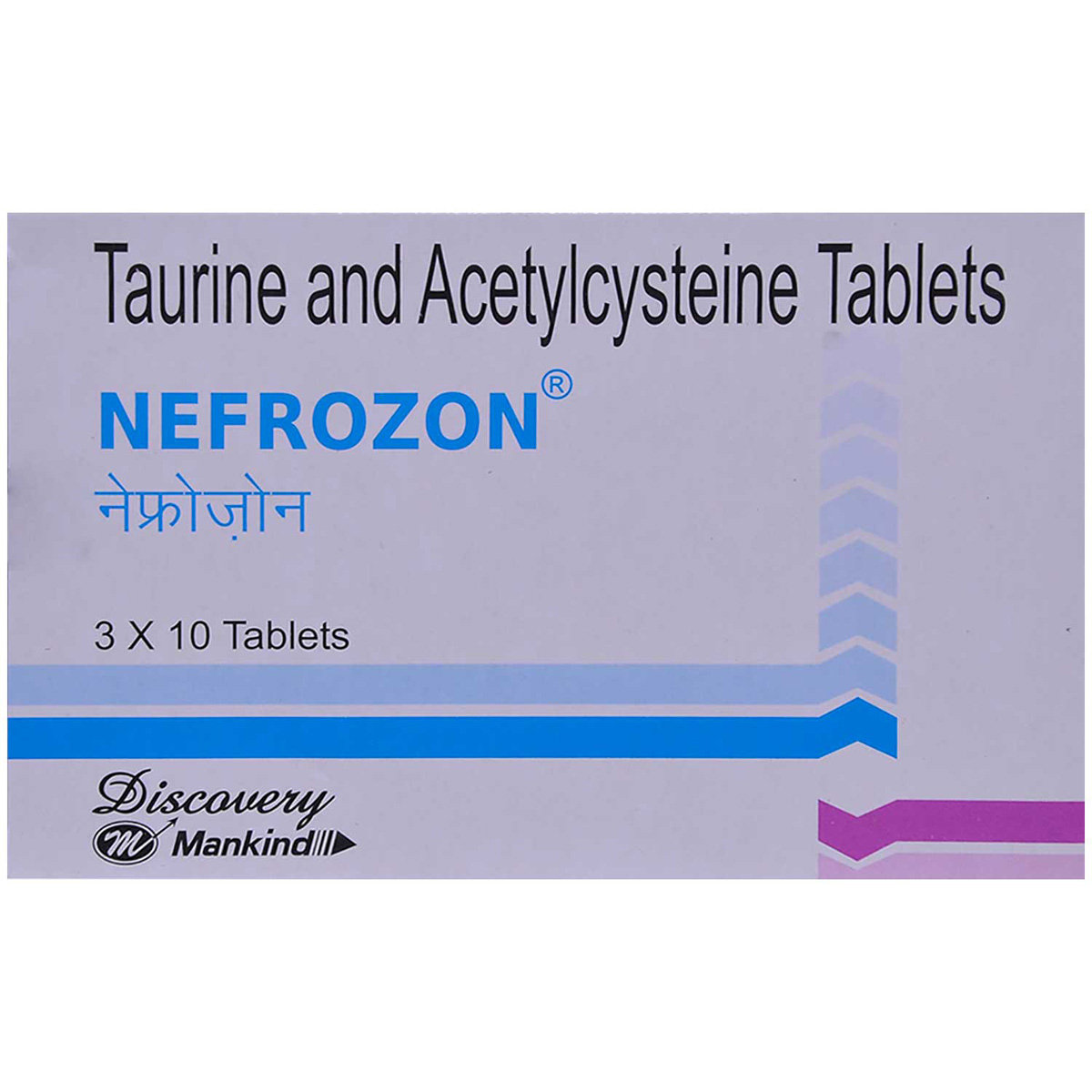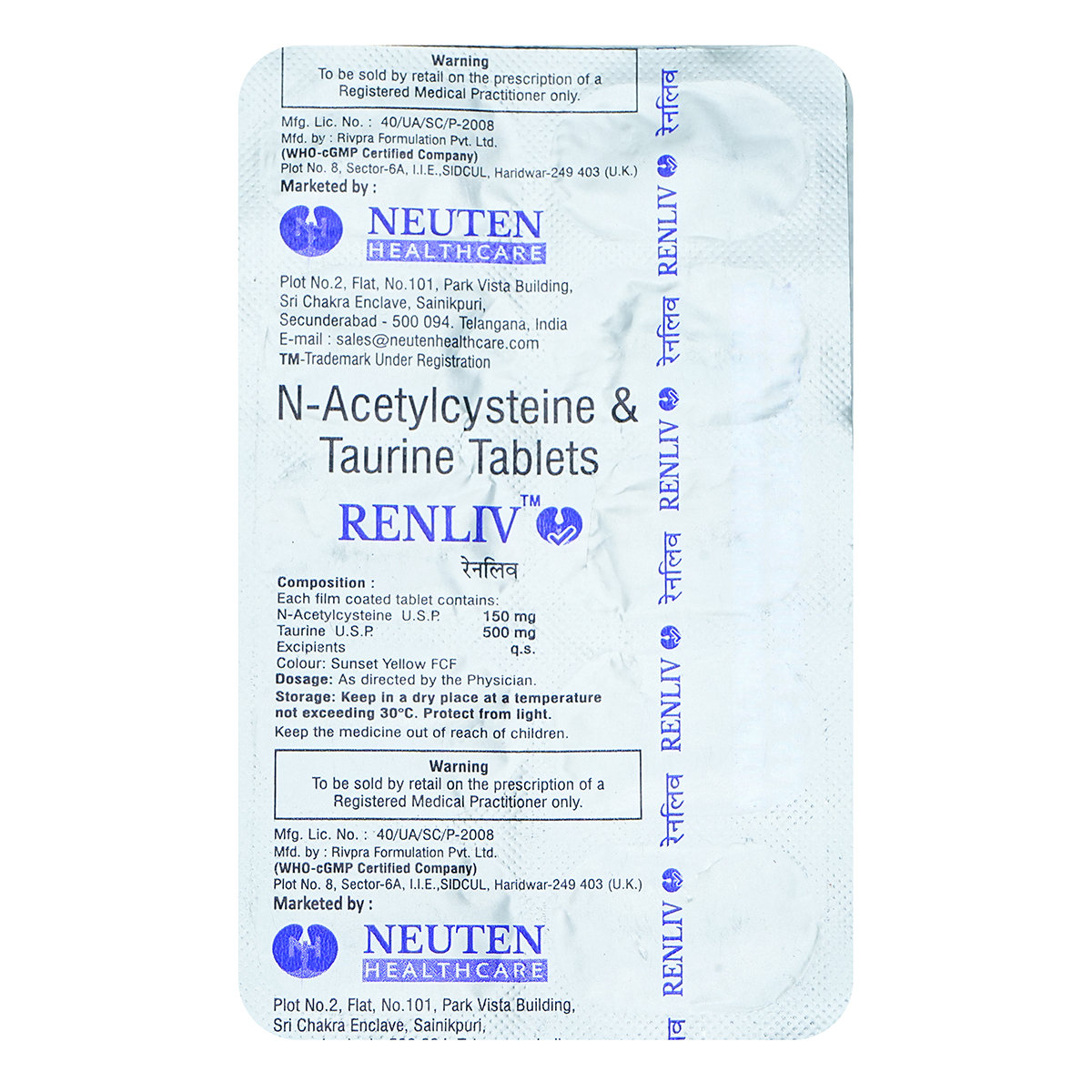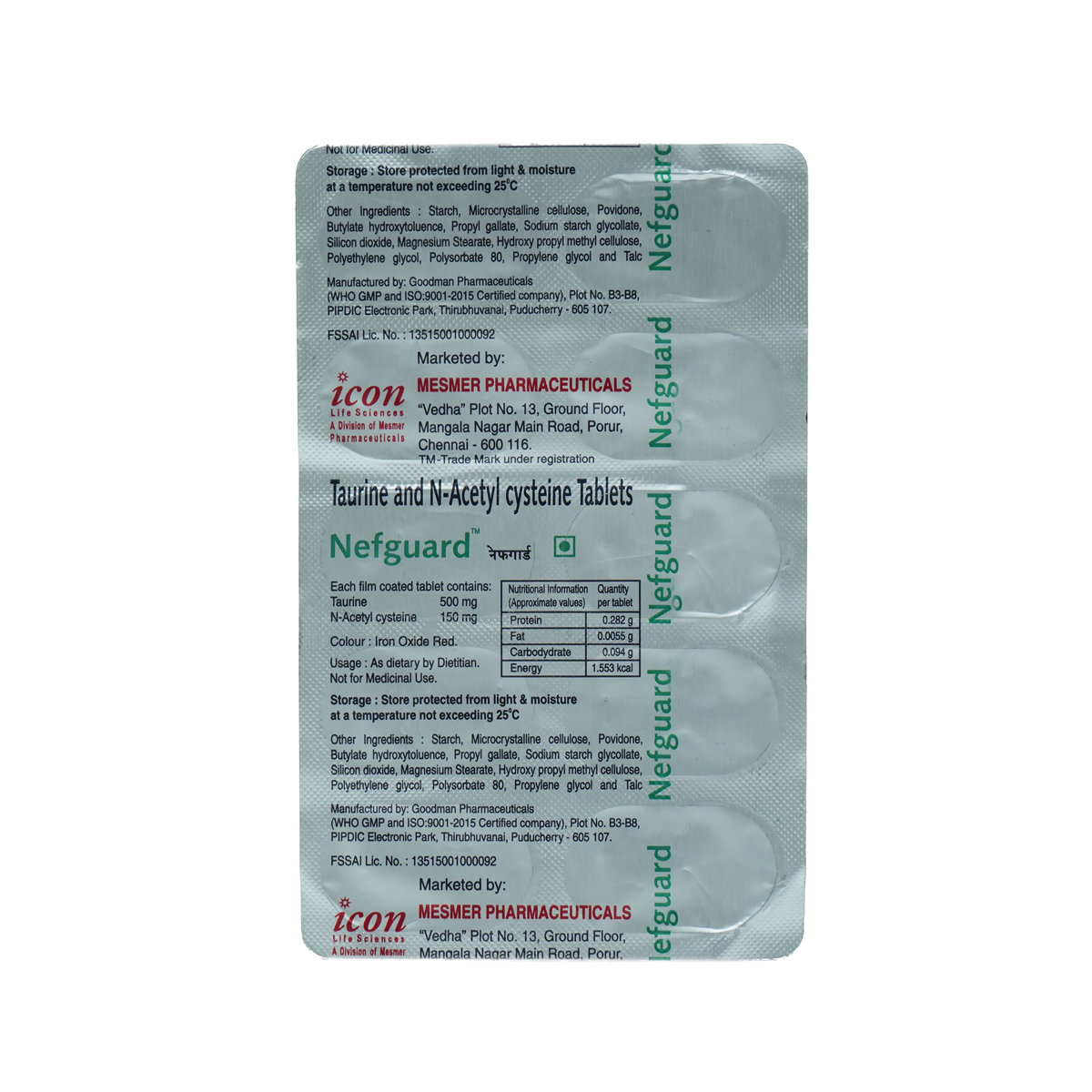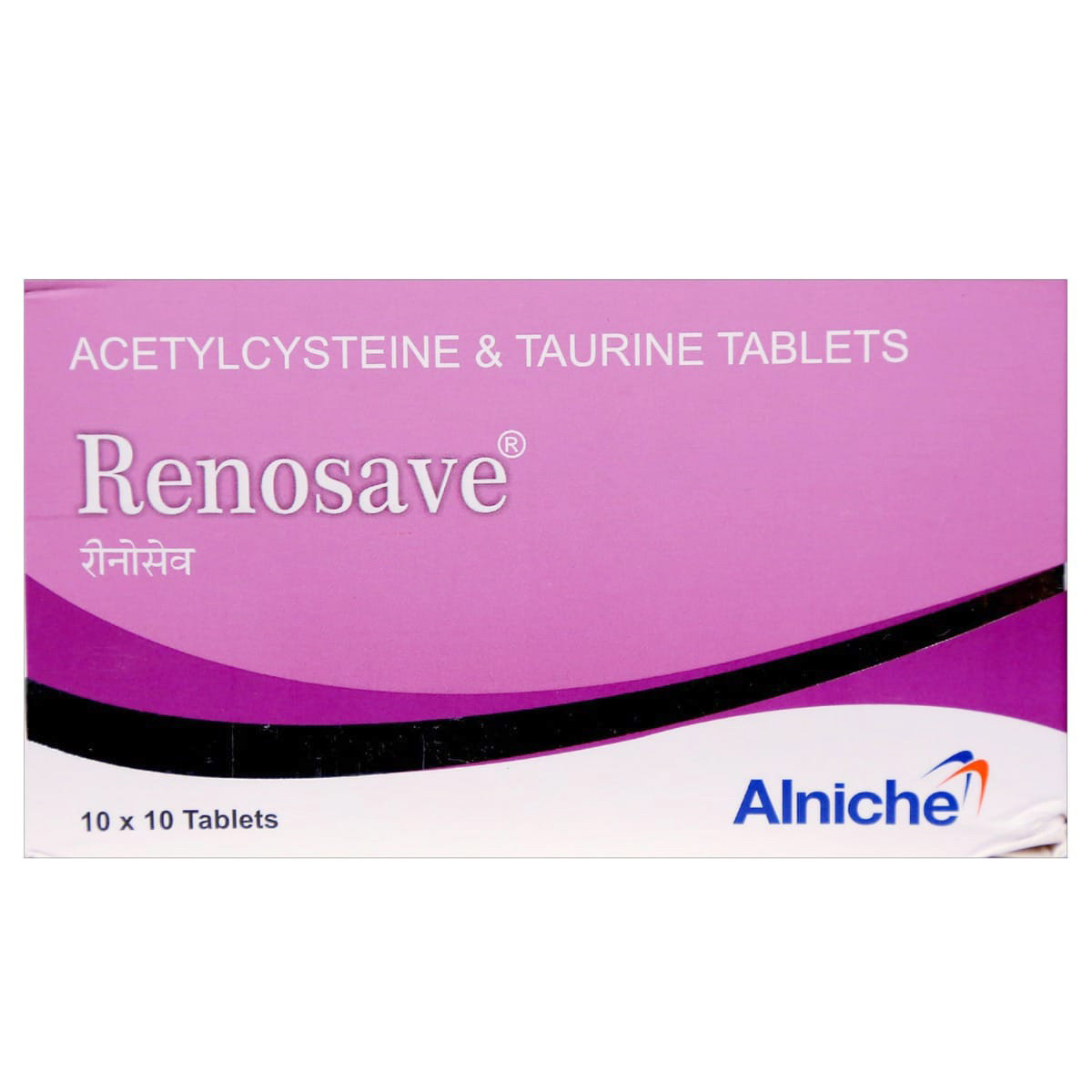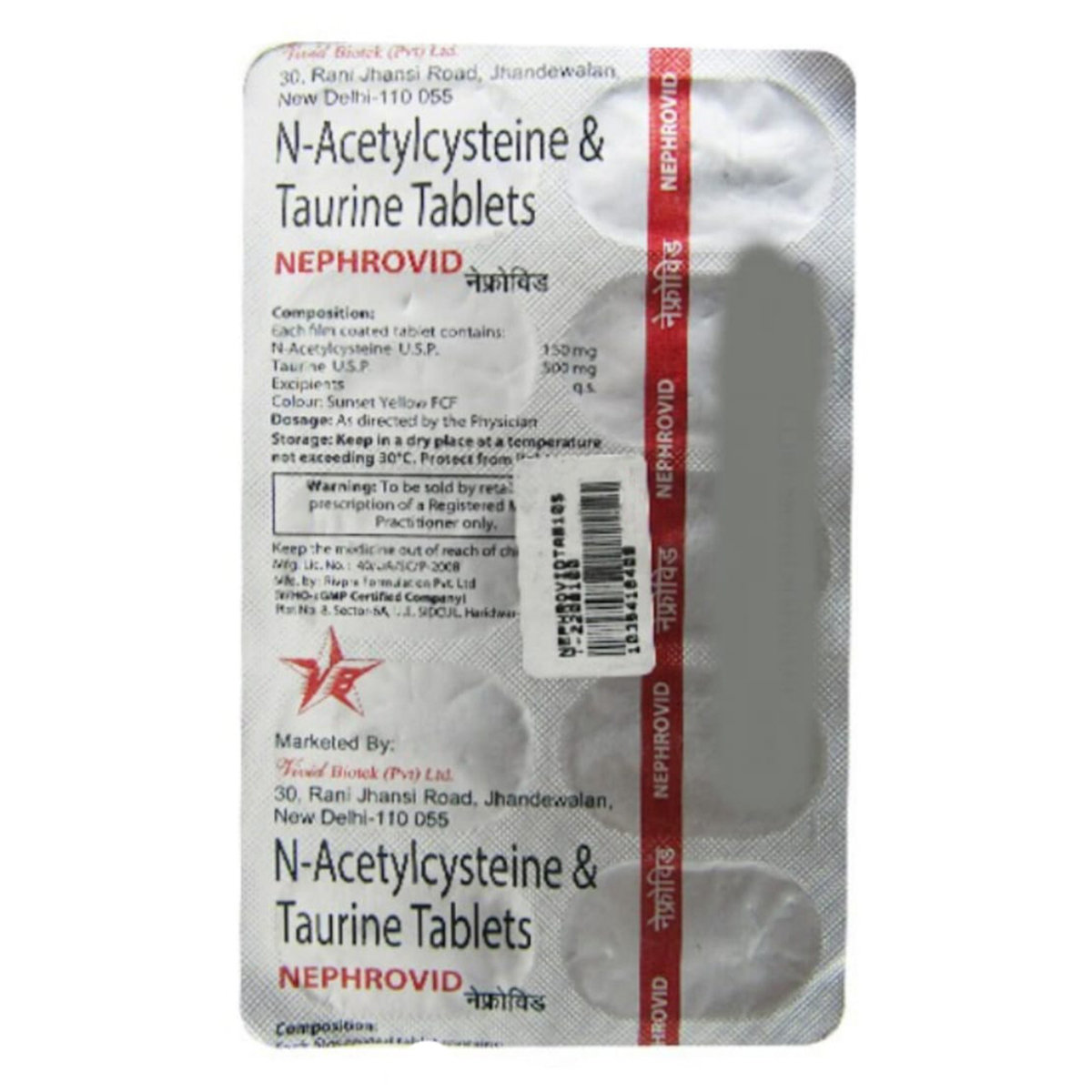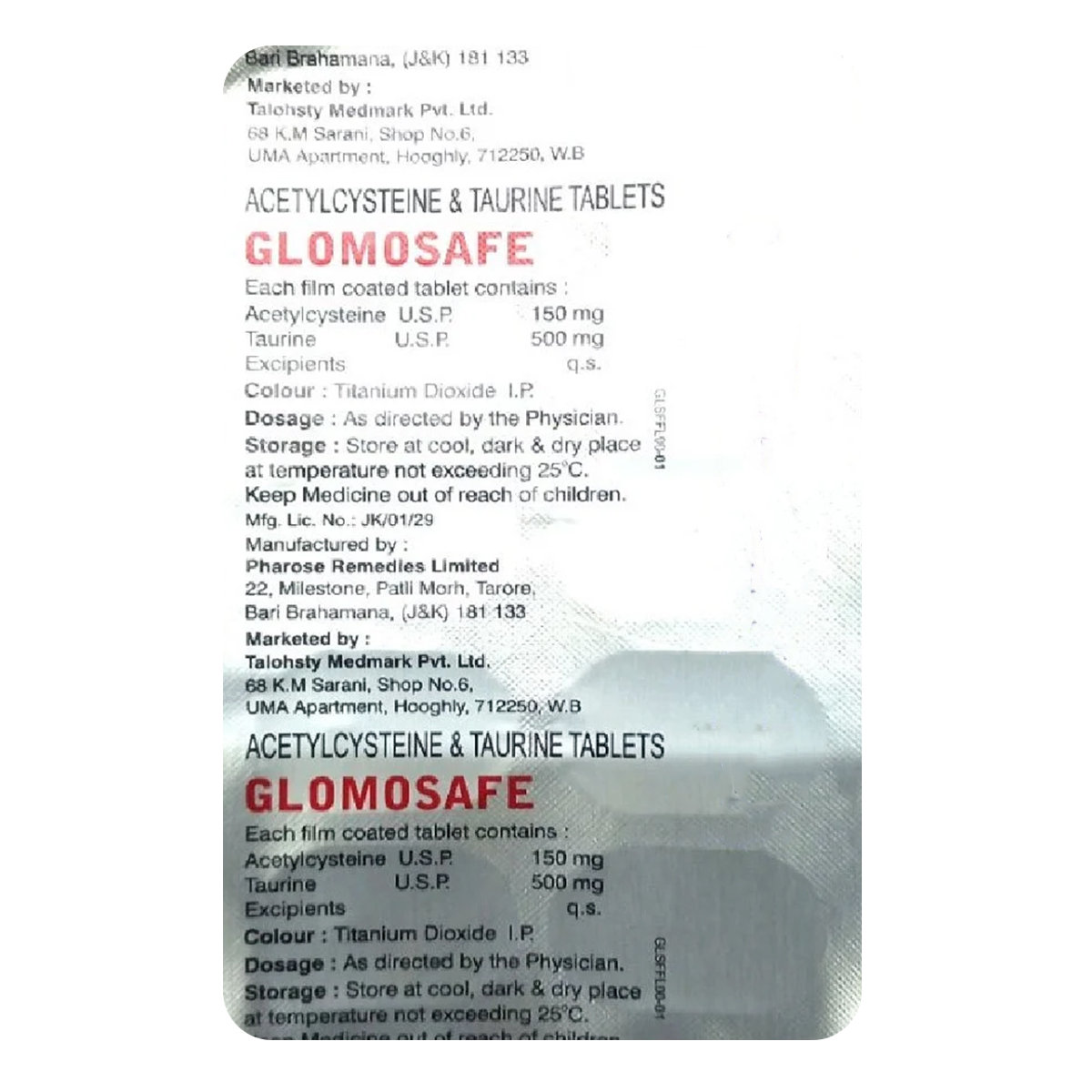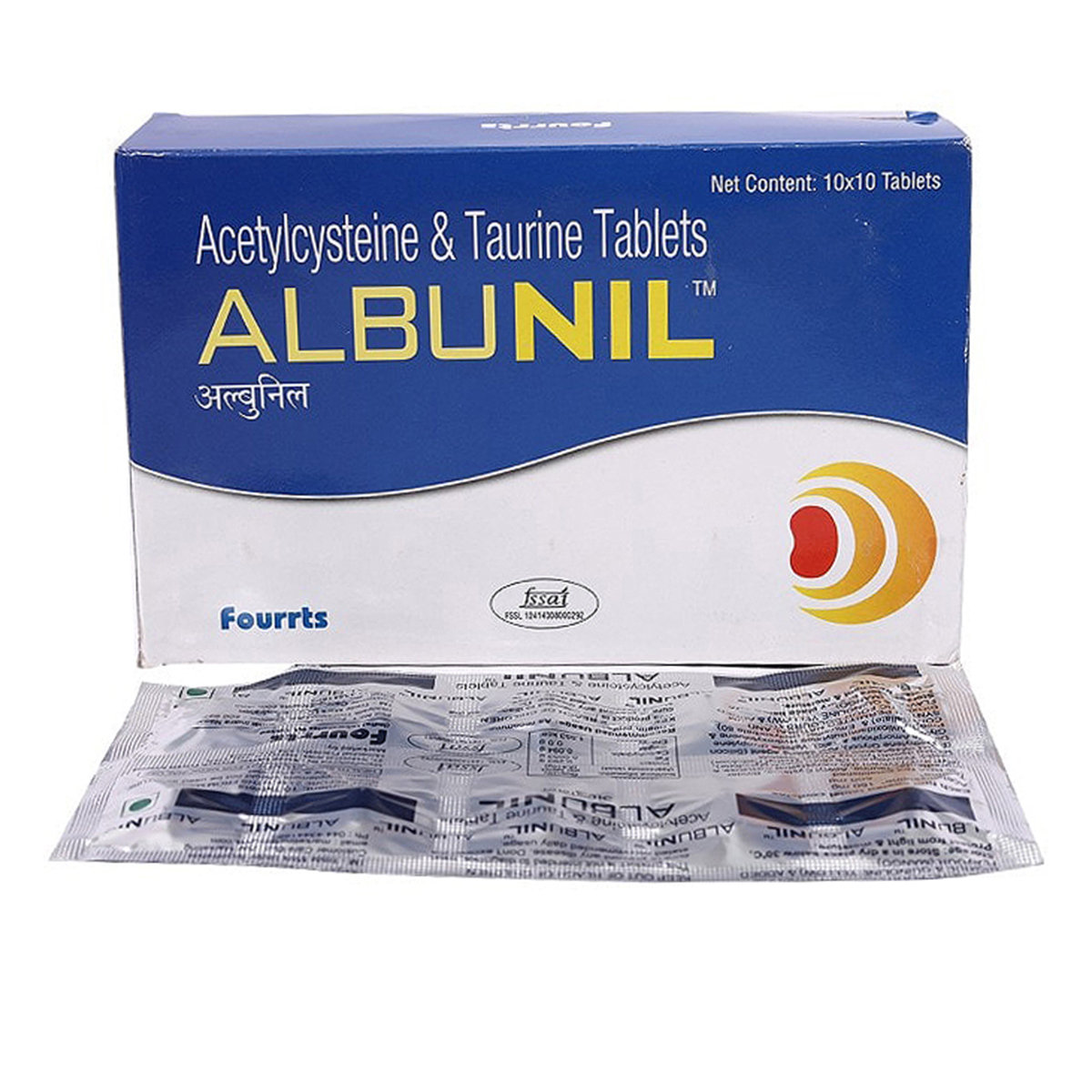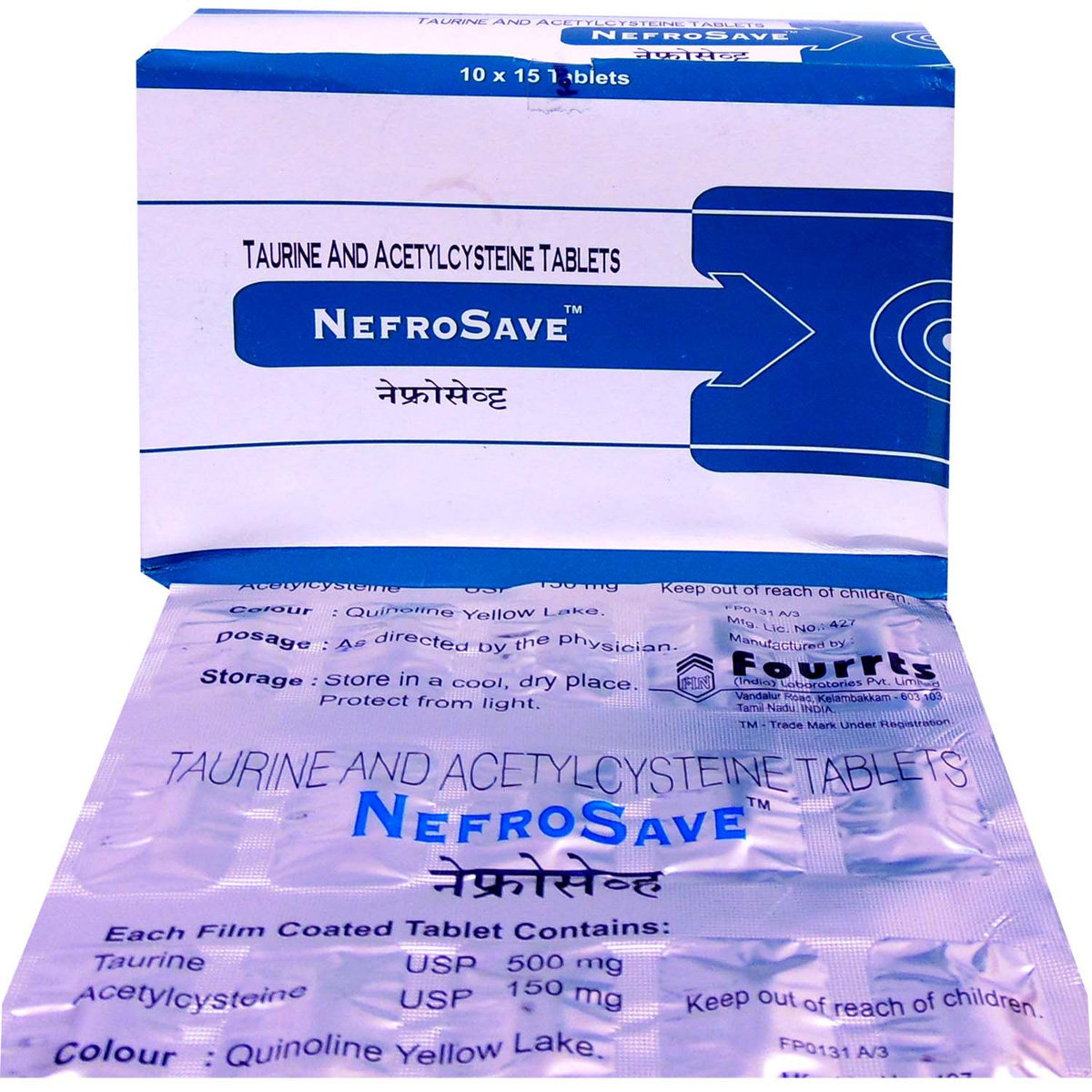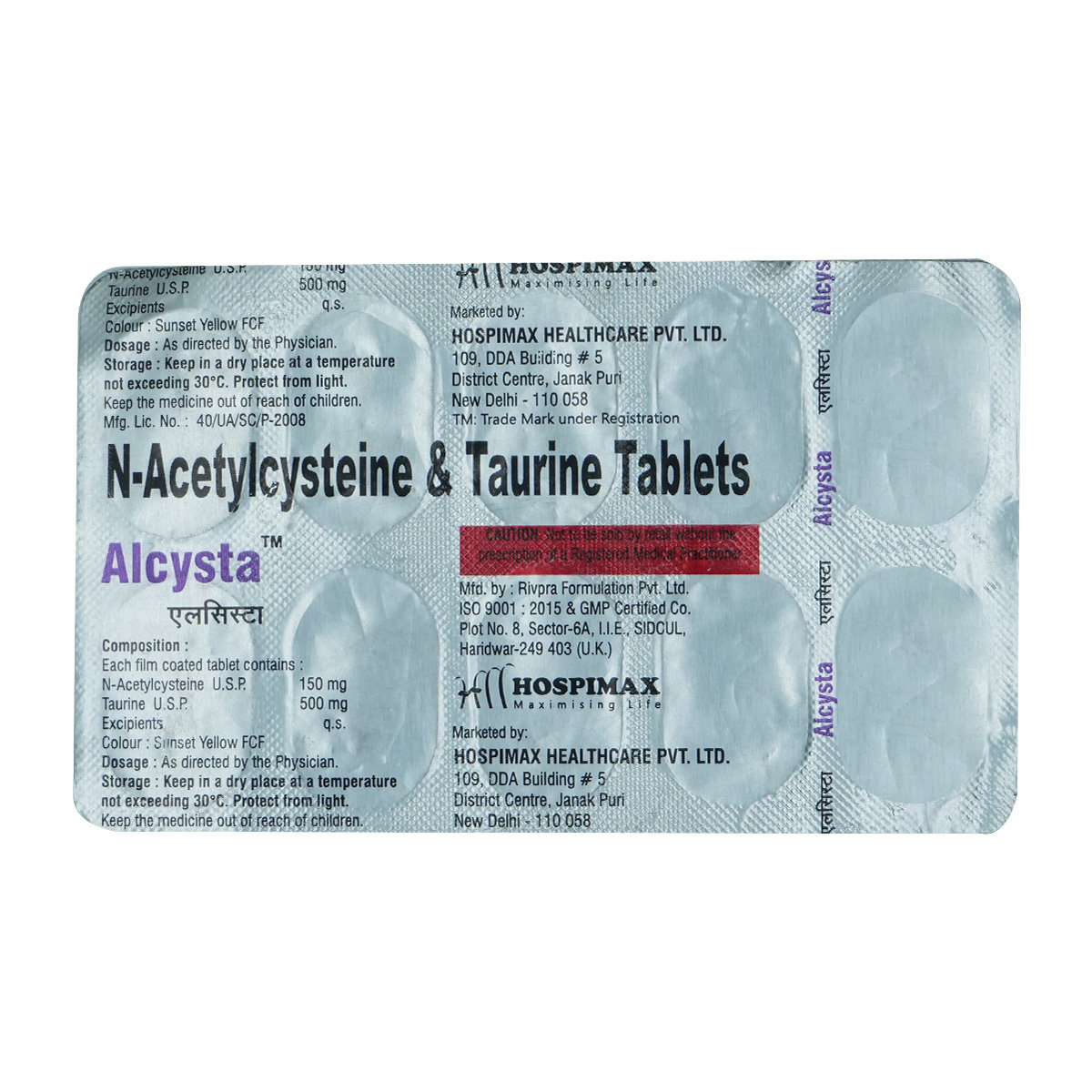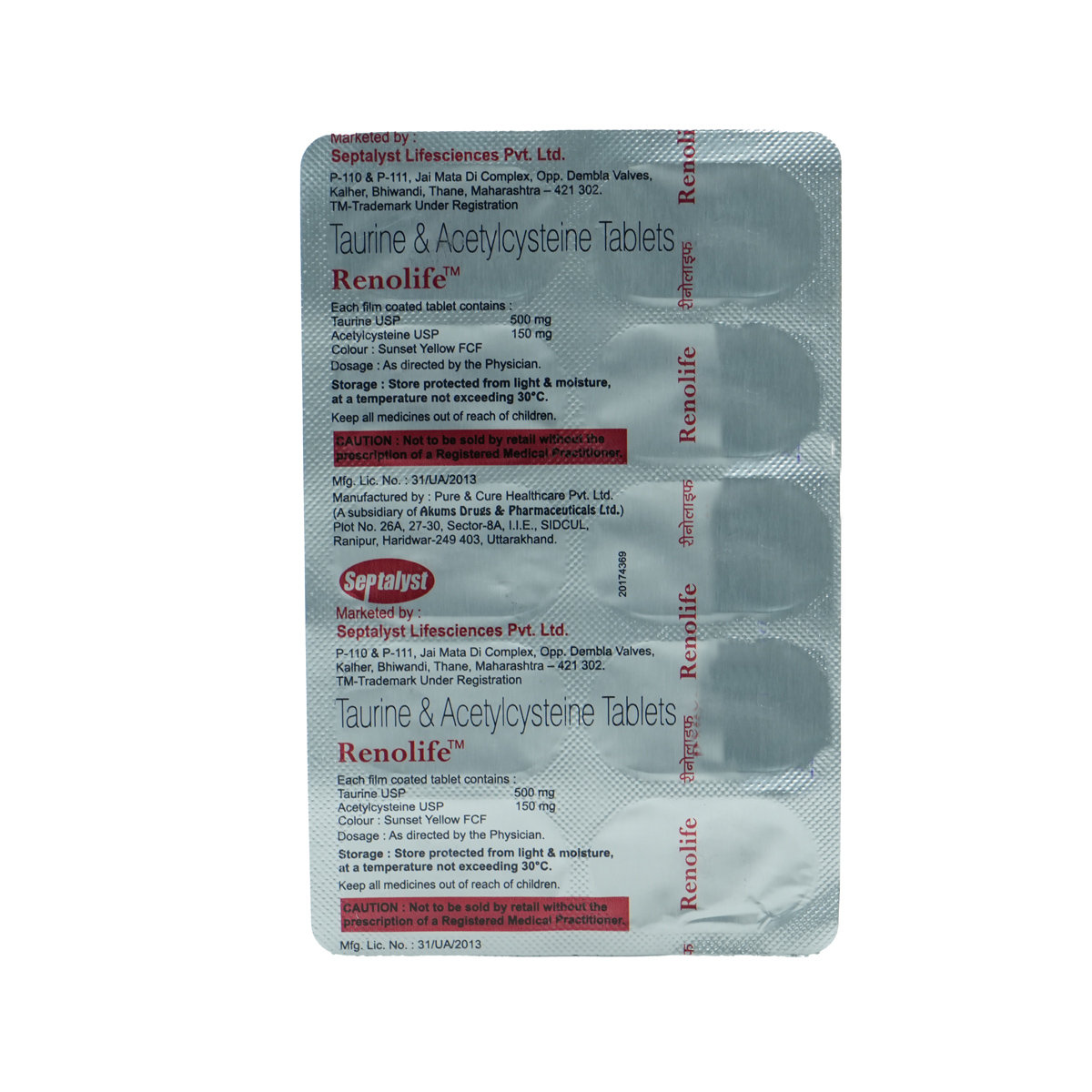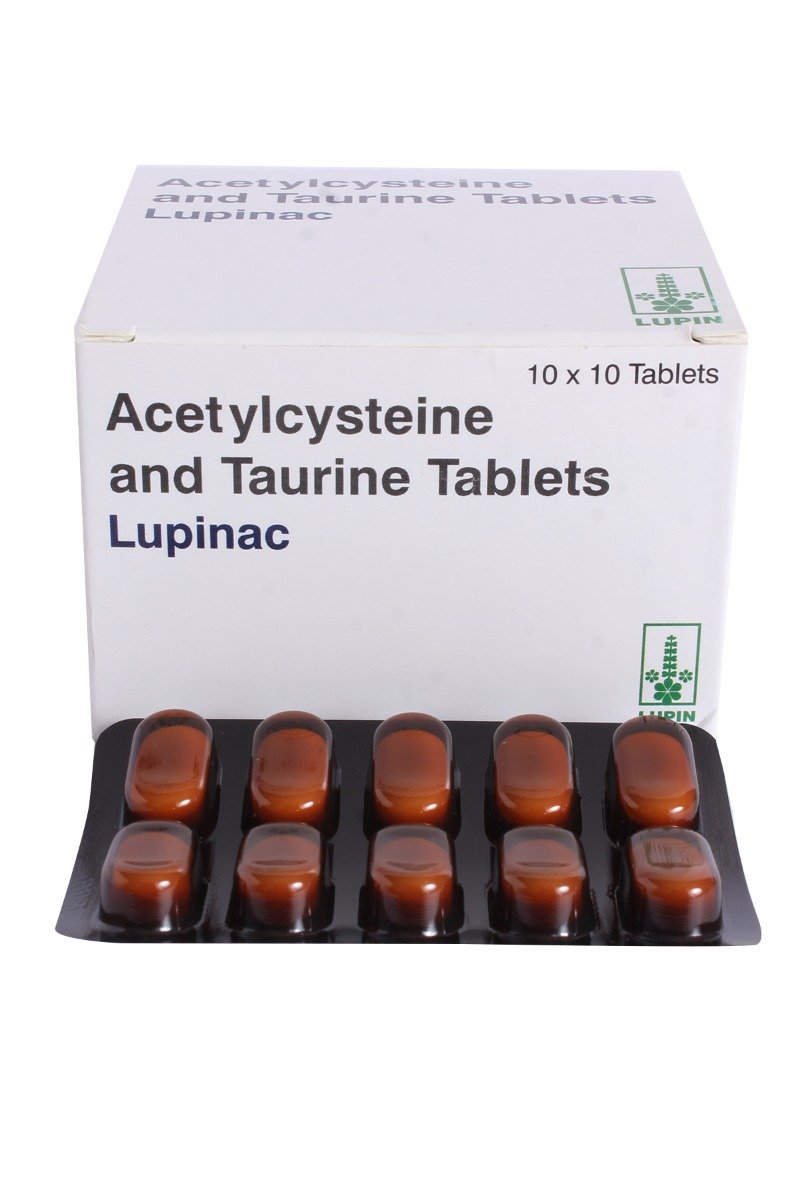Reniguard Tablet 10's
MRP ₹92.5
(Inclusive of all Taxes)
₹13.9 Cashback (15%)
Provide Delivery Location
Online payment accepted
 Prescription drug
Prescription drugWhats That
Composition :
Manufacturer/Marketer :
Consume Type :
Expires on or after :
Return Policy :
About Reniguard Tablet
Reniguard Tablet belongs to the group of medications called ‘anti-diabetic’ used in the treatment of diabetic nephropathy (diabetic kidney disease). Diabetic nephropathy is kidney damage resulting from diabetes. It is a major cause of kidney failure. The kidney damage can be slowed down by controlling the blood glucose levels in patients with diabetes.
Reniguard Tablet is a combination of two medicines: Taurine and Acetylcysteine. Taurine is an amino acid that has antioxidant properties. It can reduce further tissue damage in the kidneys. It can also reduce blood glucose levels. These effects help to control disease progression in diabetic kidney disease. Acetylcysteine is also an antioxidant and can reduce the production of free radicals that cause tissue damage. It also has anti-inflammatory properties. Altogether Reniguard Tablet works by protecting the kidneys from damage by harmful chemicals (free radicals).
It would be best if you took Reniguard Tablet as prescribed by your doctor. The common side-effects of Reniguard Tablet are nausea (feeling sick), vomiting (being sick), and rash. These side-effects are mild and temporary. However, consult your doctor immediately if any of these side-effects persist or get worsen.
Do not take Reniguard Tablet if you are allergic to Taurine, Acetylcysteine, or any other contents present in it. It is not recommended for children under 14 years of age. Before taking Reniguard Tablet , inform your doctor if you have asthma, stomach ulcers, liver, or kidney diseases, and allergic to histamine (in people who are intolerant to foods and drinks containing histamines such as tomatoes, processed foods, or wine). Also, inform your doctor if you are pregnant or breastfeeding.
Uses of Reniguard Tablet
Directions for Use
Key Benefits
Reniguard Tablet is a combination of two medicines: Taurine and Acetylcysteine. Taurine is an amino acid that has antioxidant properties. It is present in large amounts in the brain, eye, heart, and blood. However, it is supplemented by people who cannot make it. It is used to reduce further tissue damage and control blood glucose levels in diabetic kidney disease patients. Acetylcysteine is also an antioxidant and can reduce the production of free radicals that cause tissue damage. It also has anti-inflammatory properties. Together, Reniguard Tablet can effectively treat and slow down the progression of diabetic nephropathy.
Storage
Drug Warnings
Reniguard Tablet should be used with caution in patients with decreased lung function (asthma or chronic obstructive pulmonary disease), and stomach ulcers. Reniguard Tablet increases the risk of Steven-Johnson syndrome and Lyell syndrome, characterized by severe skin rashes. So, stop taking this medication and consult your doctor immediately if you notice skin rashes, ulcers in the mouth, throat, nose, or genitals, or conjunctivitis (pink eye), followed by flu-like symptoms such as fever, headache, and body ache.
Diet & Lifestyle Advise
- Eat at regular intervals. Do not take the long gap between a meal or snack.
- Monitor your blood sugar level and blood pressure regularly, especially when there are a lot of fluctuations.
- Lose weight gradually to achieve a healthy body mass index (18.5 to 24.9).
- Replace refined carbohydrates containing whole-grain foods and increase intake of fruits and veggies and other fibre-enriched foods.
- Reduce intake of saturated fat (or hidden fats) in food like chips, crisps, pastries, biscuits, and samosas. Choose omega 3 fatty acid-containing oils for daily cooking. You may use palm oil, mustard oil, groundnut oil, rice bran oil, and safflower oil for frying.
- Do not take stress as it may elevate your blood sugar level. You may adopt stress management techniques like mindfulness, yoga, or meditation to control stress-related blood sugar changes.
- Opt for low-fat dairy products (low-fat yoghurt, fat-free milk, and cheese, etc.).
Side Effects of Reniguard Tablet
- Nausea (feeling sick)
- Vomiting (being sick)
- Rash
Habit Forming
Therapeutic Class
All Substitutes & Brand Comparisons
RX
Kindsave Tablet 10's
Biokindle Lifesciences Pvt Ltd
₹129
(₹11.61 per unit)
39% COSTLIERRX
Soihenz Tablet 10's
La Renon Healthcare Pvt Ltd
₹137
(₹12.33 per unit)
48% COSTLIERRX
Celera-NU Tablet 10's
Celera Healthcare Pvt Ltd
₹138.5
(₹12.47 per unit)
49% COSTLIER
FAQs
Drug-Drug Interactions Checker List
- ACTIVATED CHARCOAL
- GENTAMICIN
- STREPTOMYCIN
- TOBRAMYCIN
- AMIKACIN
- PENICILLIN
- TETRACYCLINE
- GLYCERYL TRINITRATE
Special Advise
Reniguard Tablet may alter blood results when the test for salicylic acid (aspirin) is performed. It may also alter results when tested for the presence of ketones in the urine.
Disease/Condition Glossary
Diabetic nephropathy: Diabetic nephropathy is a condition in which there is a progression of kidney damage due to diabetes. A high level of blood sugar causes the kidney to filter too much blood. This continuous overwork can cause the kidneys to lose their ability to filter, leading to nephropathy. Symptoms are seen in later stages and include swelling of the face, hands, feet, difficulty sleeping, nausea, loss of appetite, itching or dry skin, drowsiness, and weakness. It can be prevented by controlling blood glucose levels or keeping blood glucose levels in the normal range.

Have a query?
Alcohol
Safe if prescribed
Consumption of alcohol may worsen your health condition.
Pregnancy
Consult your doctor
Reniguard Tablet is a category B medicine. It should be used with caution in pregnant women. Please consult your doctor. Your doctor will weigh the benefits and any potential risks before prescribing it to you.
Breast Feeding
Consult your doctor
The safe use of Reniguard Tablet in breastfeeding mothers has not yet been established. So, it should be used in breastfeeding women only when prescribed by a doctor.
Driving
Safe if prescribed
Reniguard Tablet may not affect your ability to drive.
Liver
Consult your doctor
Reniguard Tablet to be taken with caution, especially if you have a history of liver diseases/conditions. The dose may have to be adjusted by your doctor.
Kidney
Consult your doctor
Reniguard Tablet to be taken with caution, especially if you have a history of Kidney diseases/conditions. The dose may have to be adjusted by your doctor.
Children
Safe if prescribed
Reniguard Tablet is not recommended for use in children.

